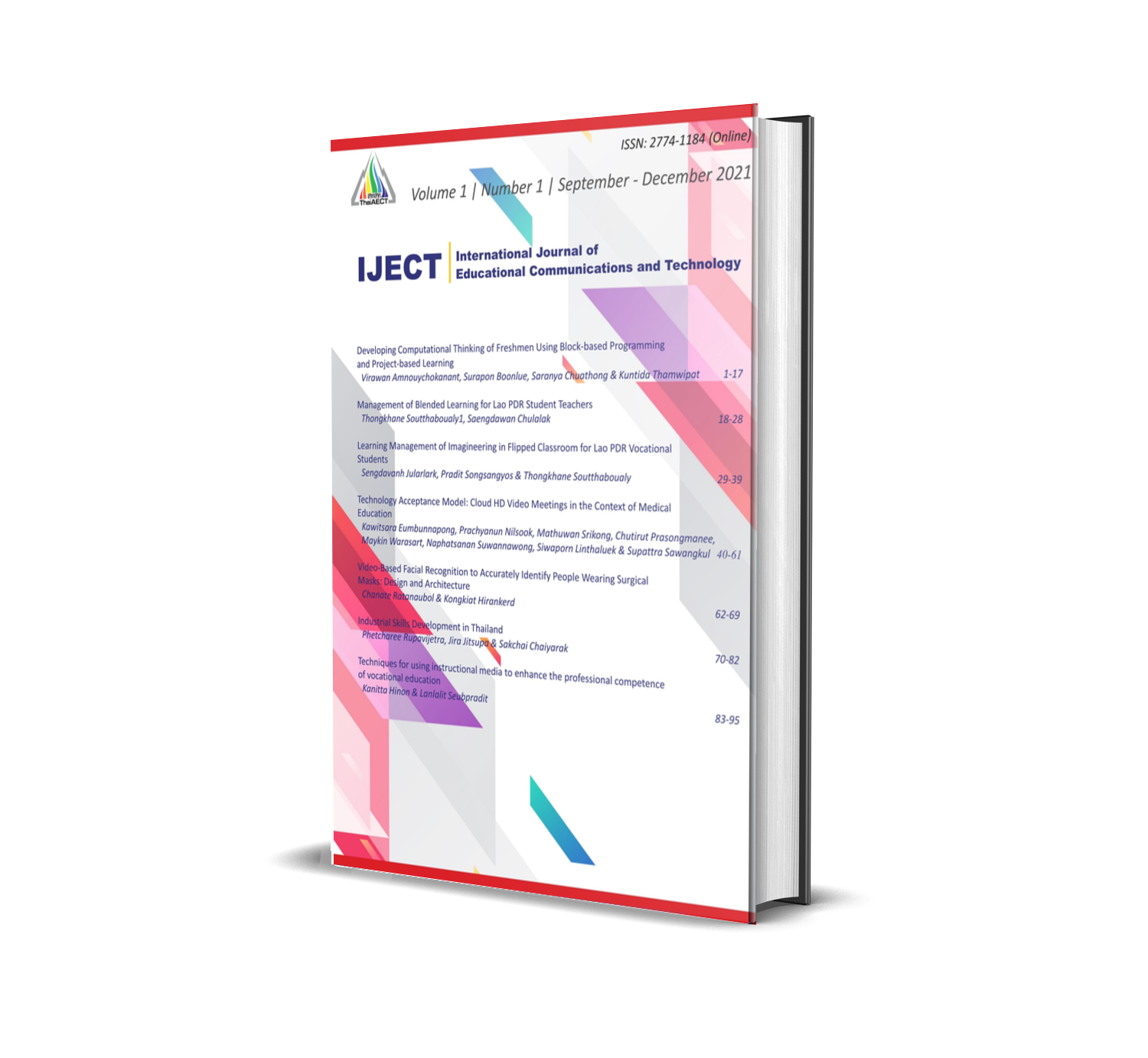Application of Blockchain Technology in Higher education
Keywords:
blockchain technology, blockchain in education, application blockchainAbstract
Blockchain technology is a highly reliable computing technology based on algorithms and decentralized data storage using cryptography principles and distributed consensus mechanisms. In addition, the data stored in the blockchain system can be hard to modify. It ensures no alteration of data, privacy, reliability, transparency, and security to all its forms of data exchange. Blockchain technology is gaining attention and is fast developing to play a crucial role in the education system and society in the future. The paper aims to provide a literature review and research that examines the application of blockchain in educational institutions, analyzing the practical application cases of using this technology. The results of the study revealed that the application of blockchain technology in education had applications as follows: certificate management, maintaining a collaborative learning environment, assessing students' professional competency, interacting with students in the e-learning system, educational record management, academic portfolio creation, fees, and credit transfers, copyright management and assessment for learning management. This paper, therefore, presents an analysis of the opportunities and limitations associated with the application of blockchain technology in the implementation of the primary missions of higher education.
References
Atienza-Mendez;, C., & Gebresenbet Bayyou, D. (2019). Blockchain Technology Applications in Education. IJCAT-International Journal of Computing and Technology, 6(11), 68–74. www.IJCAT.org
Capece, G., Ghiron, N. L., & Pasquale, F. (2020). Blockchain technology: Redefining trust for digital certificates. Sustainability (Switzerland), 12(21), 1–12. https://doi.org/10.3390/su12218952
Daraghmi, E. Y., Daraghmi, Y. A., & Yuan, S. M. (2019). UniChain: A design of blockchain-based system for electronic academic records access and permissions management. Applied Sciences (Switzerland), 9(22). https://doi.org/10.3390/APP9224966
Digital Government Development Agency. (2019). blockchain for government services. Digital
Government Development Agency (Public Organization) (DGA). 17th Floor, Bangkok Thai
Tower 108, Rangnam Road, Thanon Phayathai, Ratchathewi, Bangkok, Thailand.
Fedorova, E. P., & Skobleva, E. I. (2020). Application of blockchain technology in higher education. European Journal of Contemporary Education, 9(3), 552–571. https://doi.org/10.13187/ejced.2020.3.552
Hameed, B., Khan, M. M., Noman, A., Javed Ahmad, M., Ramzan Talib, M., Ashfaq, F., Usman, H., & Yousaf, M. (2019). A review of Blockchain based educational projects. International Journal of Advanced Computer Science and Applications, 10(10), 491–499. https://doi.org/10.14569/ijacsa.2019.0101065
Hashmani, M. A., Junejo, A. Z., Alabdulatif, A. A., & Adil, S. H. (2020). Blockchain in Education - Track ability and Traceability. 2020 International Conference on Computational Intelligence, ICCI 2020, October, 40–44. https://doi.org/10.1109/ICCI51257.2020.9247760
Hewa, T., Ylianttila, M., & Liyanage, M. (2021). Survey on blockchain based smart contracts: Applications, opportunities and challenges. Journal of Network and Computer Applications, 177(February 2020), 102857. https://doi.org/10.1016/j.jnca.2020.102857
Karale, A. S., & Khanuja, H. (2019). Implementation of blockchain technology in education system. International Journal of Recent Technology and Engineering, 8(2), 3823–3828. https://doi.org/10.35940/ijrte.B2462.078219
Lizcano, D., Lara, J. A., White, B., & Aljawarneh, S. (2020). Blockchain-based approach to create a model of trust in open and ubiquitous higher education. Journal of Computing in Higher Education, 32(1), 109–134. https://doi.org/10.1007/s12528-019-09209-y
Murray, M. C. (2019). Tutorial: A descriptive introduction to the blockchain. Communications of the Association for Information Systems, 45(1), 464–487. https://doi.org/10.17705/1CAIS.04525
Rojas, W., Gayoso Martínez, V., & Queiruga-Dios, A. (2021). Blockchain in education: New challenges. Advances in Intelligent Systems and Computing, 1267 AISC, 380–389. https://doi.org/10.1007/978-3-030-57805-3_36
Samah, A., Marwah, A., Saira, G., & Ali, A. (2019). applied sciences Blockchain-Based Applications in Education : Appl. Sci. 2019, 9, 2400, 1–18.
Tahiru, F. (2021). AI in education: A systematic literature review. Journal of Cases on Information Technology, 23(1), 1–20. https://doi.org/10.4018/JCIT.2021010101
Turkanović, M., Hölbl, M., Košič, K., Heričko, M., & Kamišalić, A. (2018). EduCTX: A blockchain-based higher education credit platform. IEEE Access, 6, 5112–5127. https://doi.org/10.1109/ACCESS.2018.2789929
Villegas-Ch, W., Palacios-Pacheco, X., & Román-Cañizares, M. (2020). Integration of IoT and blockchain to in the processes of a university campus. Sustainability (Switzerland), 12(12), 1–21. https://doi.org/10.3390/su12124970
Downloads
Published
How to Cite
Issue
Section
License
Copyright (c) 2022 International Journal of Educational Communications and Technology

This work is licensed under a Creative Commons Attribution-NonCommercial-NoDerivatives 4.0 International License.







